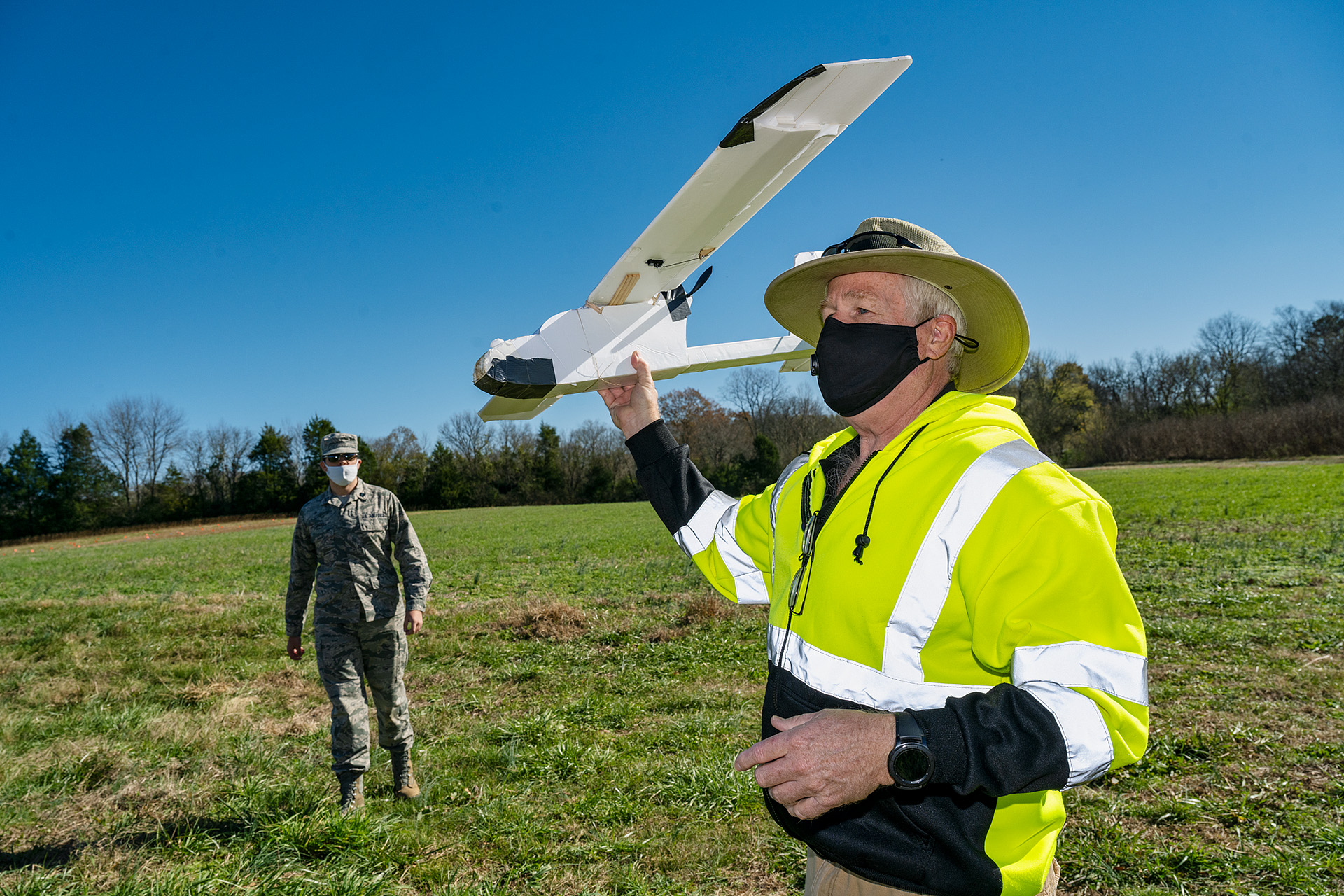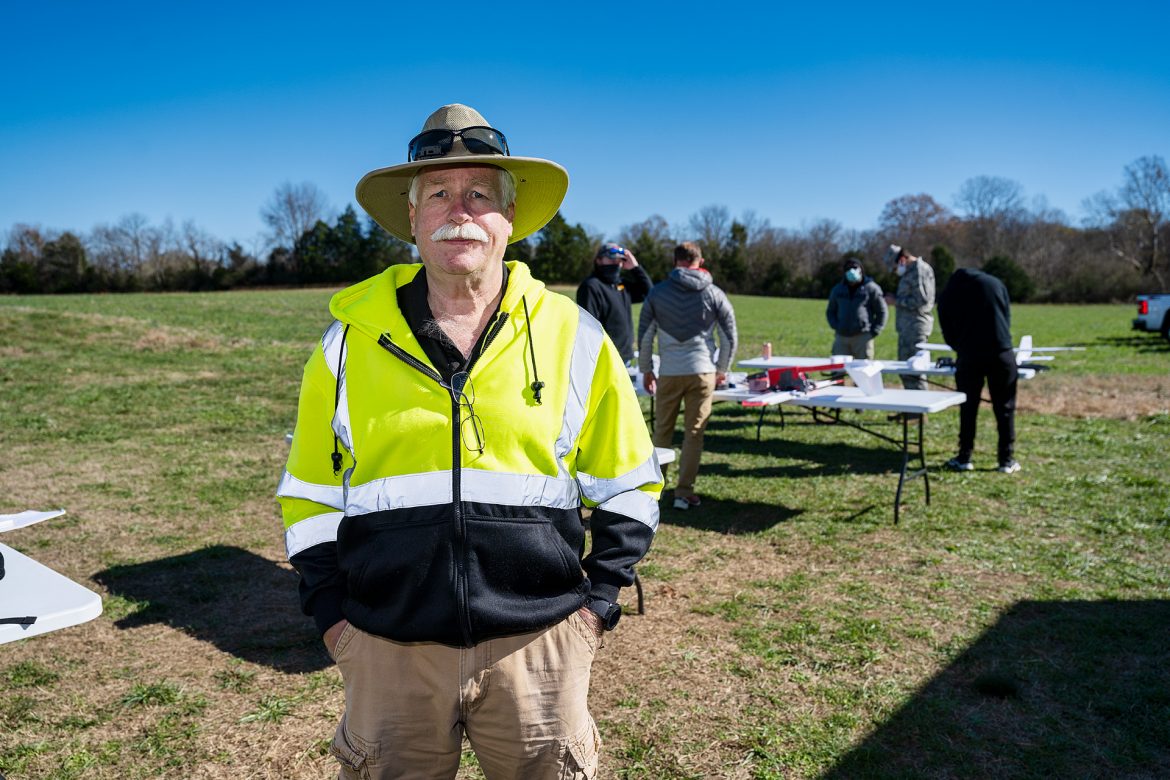Coming to MTSU four years ago after a lengthy career in the cyclical airline industry, Dr. Kevin Corns is able to share with his students how the challenges they are facing as they adjust to remote learning and the new campus environment are helping them develop exactly the types of skills necessary to succeed in the “real world.”
Corns is an assistant professor in the Unmanned Aircraft Systems (UAS) Operations program, one of the newest concentrations offered in MTSU’s Department of Aerospace. Fortunately, his 1000-3000 level classes required few modifications to deliver instruction during the pandemic. The one-and-a-half-hour classroom lectures moved online seamlessly; however, adjusting the lab capacities for hand-on learning and supplying more equipment were more pressing concerns. Previously, labs held as many as 16 students; now, he holds multiple labs and limits the capacity to eight. In the 3000-level class where students build a drone, the ratio of students per unmanned aircraft was four to one; now, the ratio is one to one.

Kevin Corns, assistant professor in the Department of Aerospace, is shown with students flying their Unmanned Aircraft Systems drones at the MTSU Farm in Lascassas, Tenn. He said this is a fixed-wing drone they built in an upper-division UAS Operations program class. (MTSU photo by Andy Heidt)
A student in one of Corns’ fall semester classes contacted him last summer. Since the out-of-state student’s schedule had all remote-learning instruction, except for the single UAS class, would the student need to move to Murfreesboro to take his only in-person class? Instead of forcing an expensive move, Corns quickly agreed to send the aircraft kit to the student’s home in New Jersey. The student was able to “attend” class online and build his drone at home. By bringing his completed project to campus during a five-day trip to Tennessee, the student was able to demonstrate his aircraft, complete the course, and have Corns make an evaluation.
Even before last spring, Corns was taking steps to hold UAS labs at the MTSU dairy farm, instead of on campus. The Department of Aerospace added a trailer with a generator, and canopies to provide shade, at the farm. While the initial goal of moving to the farm was to take advantage of having more space to safely test drones, an added result was being able to comfortably accommodate Covid-19 physical distance requirements. With the reduced lab capacities, Corns is able to provide more efficient and more one-on-one instruction, too. When his fall semester graduate teaching assistant and a UAS operations manager were present at the farm, three students could have their drones in the air at the same time.

Kevin Corns, Aerospace faculty, with students flying their Unmanned Aerial System aircraft at the MTSU Farm. Brian Liddle (Jr.) left, with Kevin Corns, Aerospace faculty. (Photo: Andy Heidt)
Of course, Corns admits students are not the only ones having to adapt. He counts among his new skills the ability to Zoom and to use Panopto to record his lectures. Although he misses the rhythm of the university – the wave of students filling halls and sidewalks when classes dismiss, and the social interactions with students and faculty – he is enjoying the ease of finding a parking space on campus.
Corns repeatedly encourages his students by reminding them that MTSU is preparing them for employment. Just as their university experience is changing, the world is changing. Thus, students who are comfortable in this “new normal” at MTSU will succeed after graduation.
MTSU UAS grads are now employed in a variety of jobs: NASA, Tennessee Valley Authority (TVA), engineering companies in Huntsville, and in mapping and 3D imaging positions all over the country. Corns offers another piece of advice, “having a strong minor will always help you roll with changes.”
— Lynne Miller (Lynne.Miller@mtsu.edu)


COMMENTS ARE OFF THIS POST